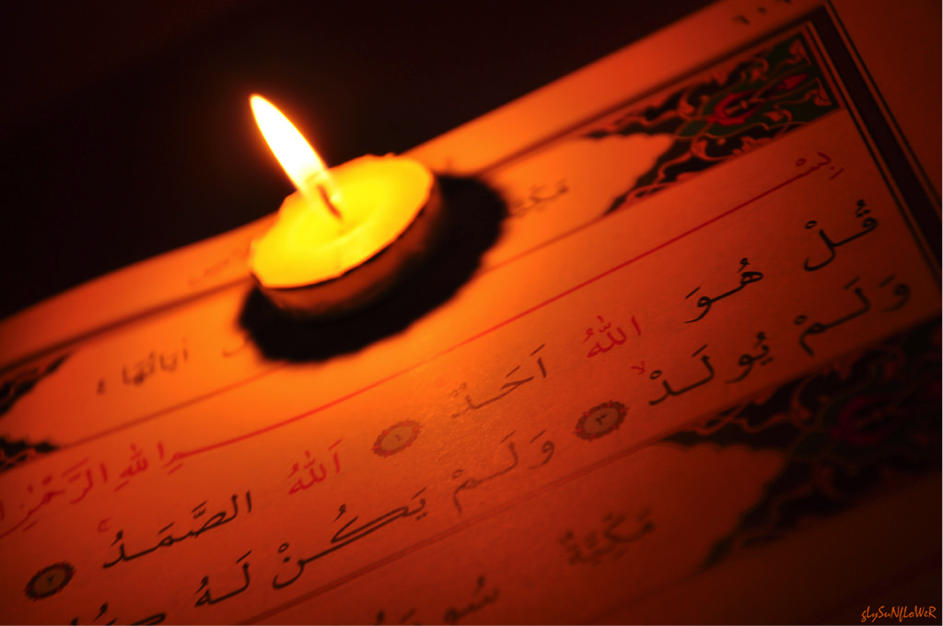You can find the complete series on this link Quran Tafsir – Surah Al-Fatihah Series
Ayah 5 Ihdina As Sirat Al Mustaqeem (Guide us on Straight Path)
Until this point we learned that the first 3 Ayaat of Fatiha was an introduction to Allah. The Fourth Ayah was an introduction to us humans (that we are His slaves and are in great need). Now the Last 3 Ayaat are introduction to Qur’an. Just like any book of guidance (like a book that guides you to learn Arabic, or a book like 101 ways to do so and so) it always contain the following sections:
“About the Author”
“Is this book for You?”
“Introduction”
“Conclusion”
Quran has “Conclusion” section as well; the last three surah together acts as the conclusion that In Shaa Allah we will discuss later on.
Ihdina As Sirat Al Mustaqeem, let’s analyze this Ayah word by word;
Ihdina in Arabic it means “Guide us” but there are two ways that we can say “guide us” in Arabic. One is “Irshaduna” and other is “ihdina”. Now why does Quran use Ihdina instead of Irshaduna (which actually is more common word for guidance). We will site two examples here so we would understand easily.
Suppose I am visiting a new country where I have never been before now I want to reach to a destination but don’t have map with me. So I ask someone, this Man tells me, “keep walking forward for 100 metres, then turn left and then turn right through the second street, then walking 100 metres more and you will find this place there. I thanked him and move forward. Now still I can’t manage to get to my destination. So again I asked another man. This Man, as soon he heard the name of destination grabbed my hand, dragged me forward, he turned right and kept dragging me . Then we walked for 50 metres then finally he stopped and said “This is your destination”. If we can see both these men guided me but in Arabic for the first man we can say he was a “Rashid” & he gave us “Irshaduna”
and the second man we can say he was a Haadi and he gave us “Ihdina”. I hope through this simple situation we understood its difference. So in Surah Fatiha we are not just asking Allah to guide us on straight path. We are actually asking Allah to hold our hand and pull us forward not make us stop until we reach our destination.
SubhanAllah, but do we actually mean it? You know this is the dua’ that we recite maximum number of times in a day in each rakah but still why don’t we receive that kind of Guidance? It’s relatively obvious, think of this situation again; suppose I go to France with my friend. Now there in France I am gossiping with my friend in English (I don’t know French). In between someone came and told to me to Say “puis-je avoir un verre d’eau”. If you follow I will give you a reward. I agreed and I just copy him without understanding what he said and give me my reward and leave. The friend in front of me understands french and he understands what I said. It means “Can I have a glass of water”? Although my friend understands it yet, does he bring water for me? No because he knows that I didn’t mean it when I said that. I only did for a reward and not because I really need water at that time.
When we say to Allah “ihdina As Sirat Al Mustaqeem” judge yourself, do you say it just merely for reward or do you mean it that you are in need of a deep guidance. I hope u got your answer why our prayer of guidance is not accepted at times.
As Sirat Al Mustaqeem (the Straight Path)
As Sirat means the path
Mustaqeem means straight
But there is another word for path in Arabic. Have you ever heard phrases like Sabeeli Allah” (The path of Allah)? Like spend in the path of Allah, do jihad in the path of Allah.
In these statements Allah uses the word sabeel for path but when Allah describes the path which we are asking guidance, then he uses the word sirat .Why? In Arabic we have a plural for the word sabeel but there is absolutely no plural available for the word sirat. When we spend in path of Allah, we can actually spend in quite a lot of ways; spend money, time, effort etc. There are several paths even if you do not have money you can spend time so you can choose which path to go. In case of jihad there are several ways;you might be in a physical jihad, mentally and even when you are in process of submerging your anger or forcing yourself to love someone you hate for the sake of Allah. These are but a few paths of jihad for sake of Allah. But guidance my brothers and sisters, there is only one sirat no plural alternative and perhaps that is why Allah says this “Sirat is Mustaqeem”. The path of guidance is a straight path. As you know there can be only one straight line between two points.
Now final comment over this ayah; we asked Allah for guidance a kind of guidance that holds our hand and drag us to success. So this dua’ Allah heard and in the form of an answer to this dua’, Allah revealed 113 surahs that succeeds Fatiha. The complete Qur’an is an answer to this one dua’.
That is a complete introduction of the Qur’an. Qur’an is an answer to the dua’ “hold our hand and guide us to the (only) straight path”. That is why in each salah first you recite this Dua’ (Fatiha) and immediately after that you recite a part of the answer to this dua’ (any other surah). If u ever wondered why we have to recite Fatiha in each salah then this is your answer.
Ayah 6 Sirat alladina ana’mta a’laihim (The Path of those on whom was your Favours)
We finished in ayah 4 that after recognizing Allah we have given ourselves as His slaves and then we recognized the desperate need of His help, while waiting for some commandment from our master so we can excel in our job. Then in ayah 5 we asked Allah for the extreme guidance on the straight path that directly leads us to success. Now we reached ayah 6 and ayah 7, both these ayaat explain what kind of path we want. Remember in the tafseer of last ayah I gave u an example of a man who asks guidance to a particular destination. Whenever we ask guidance we need to provide a destination but Islam is amazingly different! Islam doesn’t call to destinations rather it calls to the path.
Allah says…
“Strive in the Path of Allah..”
“Spend in the Path of Allah..”
“Call people to the Path of Allah..”
And of course…“Guide us to the Straight Path”
“The path of those whom was your favour”
The destination is jannah but Islam is the path and actually the complete Qur’an is its map. Now why is Islam’s so much focus on the word path? As you will read the Qur’an more and more you will realize that we do not need to care about jannah. What we need to focus on our faith and good deeds. The destination jannah is automatically achieved once we walk on this path of faith and good deeds. Here comes an important point of realization, when does someone walks on a Path? That is when he is on a journey and a journey is full of hurdles and problems. One needs to plan well to start walking on a journey and he must have a guide with him to not get deviated from the right path and most importantly he continuously have to make progress.
To reach this destination of jannah one needs to get out of his comfort. There is no Islam if you are as comfortable as everyone else in this world because most of the people are still enjoying at their homes. You need to get out and walk on this path and start this journey.
Most importantly don’t sit after stepping out of home, keep walking, progress… Even if the progress is as slow as no one but u can see it, it’s enough for Allah.
The beginning of the Qur’an tells us that we are actually preparing ourselves mentally to start a journey. We are going to come out of the comfort zones, and start walking on the path, but which path? Here’s a scenario once again to facilitate understanding; Suppose if I want to go to a hypothetical place called “Al Balad” but I have no idea of the route hence I ask two of my trust worthy friends where Al Balad is. One of them said, “I heard about this place and I heard that if someone wants to go there he should start walking straight towards North.” The other friend reckoned, “I have been to Al Balad last year I reached by walking toward East and arrived in two-nights Journey”. Whom should I follow? Most likely, I will listen to the one who had gone to that place. That’s why we ask Allah to show us exactly the particular path on which other person have walked and reached successfully.
“Guide us to the Straight Path.
The Path of those on whom you bestowed your Faith”
We asked this dua’ and Allah heard it and He filled the Qur’an with stories of people who were successful.
If you are a son follow the path of a son like Ismail
If you are a young man follow the path of the People of the cave
If you are a young woman follow the path of Maryam
If you are a King follow the path of Zulqarnayn
If you are a man who earns an honest living follow the path of Musa when he was exiled and used to work for a living…
If you have been wronged unjustly follow the path of Yusuf
Allah answered your prayer through his Qur’an…. However if the Qur’an is a map of our journey then my brothers and sisters we must learn how to read the map well.



